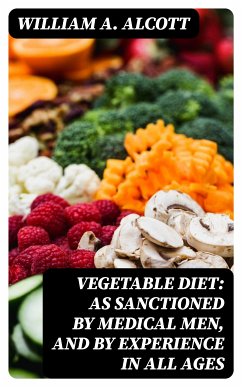In "Vegetable Diet: As Sanctioned by Medical Men, and by Experience in All Ages," William A. Alcott presents a compelling argument for the adoption of a plant-based diet, drawing from historical, medical, and experiential perspectives. This work is characterized by its blend of anecdotal evidence and scientific inquiry, reflecting the ethos of early 19th-century reform movements that emphasized health, wellness, and moral living. Alcott meticulously compiles testimonies from medical professionals and examines the long-standing practices surrounding vegetarianism, weaving together a narrative that highlights the ethical benefits and health advantages of a vegetable diet, thus situating the book within the larger context of American transcendentalism and health reform of his era. William A. Alcott, a prominent figure in the 19th-century health reform movement, was influenced by a confluence of personal experiences and broader societal ideals that shaped his advocacy for a vegetarian lifestyle. A physician himself, Alcott's insights were guided not only by medical knowledge but also by a deep concern for the moral implications of food choices. His extensive writings reflect a commitment to promoting wellness and challenging the dietary conventions of his time, fostering a dialogue about nutrition that resonates strongly in the contemporary health discourse. "Vegetable Diet" is an essential read for anyone interested in the historical intersections of diet, health, and ethics. Alcott's rigorous analysis and passionate advocacy provide valuable insights that remain relevant today, making this book a thought-provoking examination for modern readers seeking a deeper understanding of the connections between diet and well-being. Whether you're a seasoned vegetarian or simply curious about alternative diets, Alcott's work encourages a critical exploration of the food choices that shape our lives.
Dieser Download kann aus rechtlichen Gründen nur mit Rechnungsadresse in A, B, BG, CY, CZ, D, DK, EW, E, FIN, F, GR, H, IRL, I, LT, L, LR, M, NL, PL, P, R, S, SLO, SK ausgeliefert werden.









